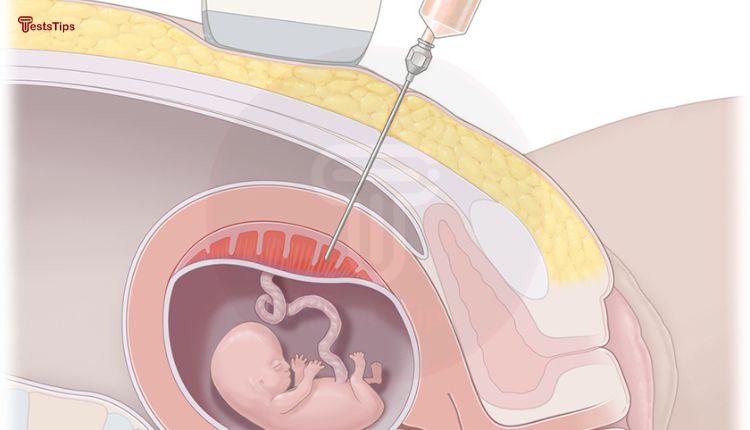Karyotype Genetic Test. When is it performed?
Karyotype Genetic Testing
Karyotyping genetic test is used to determine if an individual has chromosomal abnormalities or other genetic disorders. Read more about this test.

Table of Contents
Karyotype Genetic Test looks similar to a chromosome diagram. It shows the number and type of each chromosome present in the cell. This helps doctors identify whether the patient has a chromosomal abnormality or not.
What is a Karyotype Genetic Test?
A karyotype genetic test is a type of genetic testing that looks at genetic abnormalities such as size, shape, and number of chromosomes in a sample of cells from your body. It is used to identify and evaluate chromosomal abnormalities, such as extra or missing chromosomes, or structural changes in chromosomes.
This test can be used to diagnose various genetic disorders and conditions, such as Down Syndrome and Cat Eye Syndrome. It can also be used to screen for inherited diseases or to determine an individual’s risk of developing certain conditions. The results of this test can help guide medical decisions such as prenatal diagnosis or genetic counseling.
When Is a Karyotype Genetic Test Used?
A karyotype genetic test can reveal:
- chromosomal abnormalities that may not be visible with other tests. These abnormalities can indicate conditions such as:
- Down syndrome.
- Cat Eye Syndrome.
- Turner syndrome.
- Trisomy 18.
- Trisomy 13.
- Other genetic diseases.
- detecting chromosomal translocations, which are rearrangements of chromosomal material between non-homologous chromosomes. These translocations can cause:
- Congenital karyotype anomalies.
- Mental retardation.
- Infertility.
- Some types of cancer.
- Identify the gender of a fetus, if needed.
Who Should Be Screened For Chromosome Abnormalities?
A karyotypes genetic test is typically recommended for individuals at an increased risk of having a chromosome abnormality. This includes:
- Pregnant women over the age of 35.
- Couples with a history of chromosome disorders in their family.
- Those who have had abnormal prenatal screening results.
- Couples who have had multiple miscarriages.
- Children with birth defects.
- A fetus has certain physical features that could indicate a chromosomal abnormality.
How Can I Prepare
Genetic karyotyping is a non-invasive procedure, so there is no need for special preparation beforehand. However, it may be beneficial to discuss any current medical conditions or medications with your healthcare provider prior to the test, as these can affect the results. In addition, it is important to let your healthcare provider know if you are pregnant, as this can also affect the results.
How Is the Test Performed?
A Karyotype Genetic Test is performed by collecting a sample of cells from your body. In most cases, a healthcare professional will insert a swab into your mouth and rub it across the inside of your cheek to gather a sample of cells.
In other cases, a bone marrow test may be used if you have a certain type of cancer or blood disorder. Once the sample is collected, it will be sent to a laboratory for analysis. The lab will then perform a karyotype analysis by looking at the size, shape, and number of chromosomes present in the sample. This process involves the microscopic examination of 20 cells and the G-banding of the chromosomes.
An amniotic fluid test can also be performed to test the fetal chromosomes using Chromosomal Micro-Array (CMA).

What Are the Risks Involved With Karyotyping?
Karyotype testing is generally considered to be a safe procedure. However, there are some risks associated with the procedures used to collect samples for testing. For example, if a blood sample is taken for the test, there is a slight risk of bleeding and infection. In the case of chorionic villus sampling (CVS) or amniocentesis, there is a very minor risk of miscarriage. Additionally, test results may be inaccurate if you are taking certain medications or if you have recently had radiation therapy.
It is important to discuss any possible risks with your doctor before proceeding with a karyotype test. Your doctor will be able to provide more specific information about the risks associated with each procedure and help you decide which procedure is right for you.
How Long Does It Take To Get Results From a Karyotype Genetic Test?
The amount of time it takes to get results from a karyotype genetic test varies depending on the specific test being performed. Generally, results are available within 1 to 2 weeks. However, if the test is more complicated or the laboratory is particularly busy, it may take longer.
“Related: Insulin Blood Test. When Is it Needed?“
How Much Does a Karyotype Cost?
A karyotype test can range in cost from under $100 to more than $2,000, depending on the nature and complexity of the test. For example, if more than one test is necessary or if multiple family members must be tested to obtain a meaningful result, the cost will increase.
New born screening costs vary depending on the area you live in, but the lowest karyotype test cost in India is ₹2500.
For those with specific questions about Karyotype Genetic Test results, speaking to a genetic counselor is recommended, as they have extensive knowledge in this area.
